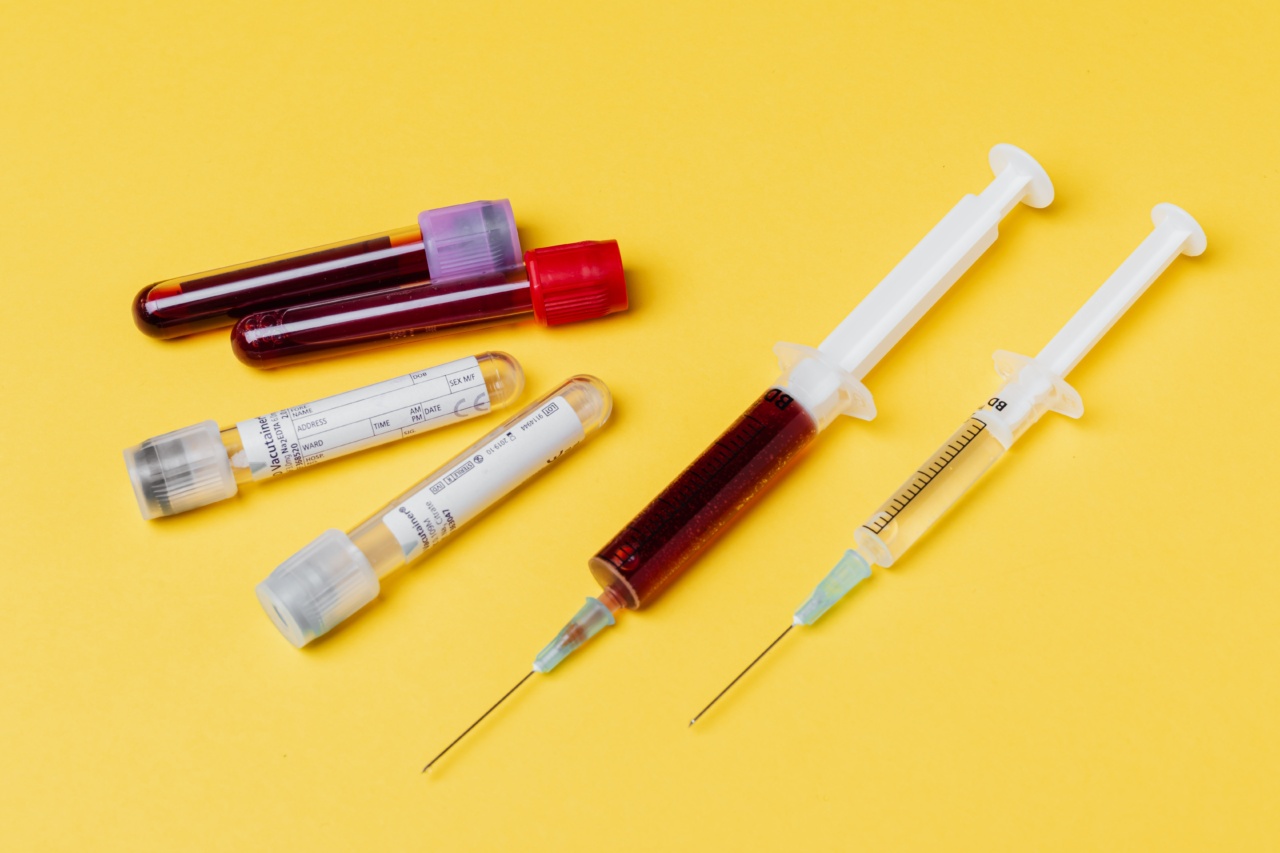If you are scheduled for a blood test, you may wonder whether or not you should take your medication before the test. It is essential to follow the advice of your healthcare provider or the laboratory conducting the test.
However, certain medications can affect the results of your blood test, while others may not have any significant impact. In this article, we will explore the influence of medication on blood test results and provide some general guidelines on when to take or avoid medication before a blood test.
Understanding the purpose of a blood test
A blood test is a medical procedure that involves taking a sample of blood to measure various components such as red and white blood cells, platelets, glucose levels, cholesterol levels, or detect the presence of specific substances or diseases.
These tests help healthcare professionals diagnose medical conditions, monitor treatment progress, or assess overall health.
The impact of medication on blood test results
Medications can affect the results of blood tests in multiple ways. Some medications can directly alter the levels of certain components in the blood, while others may interfere with the accuracy of the test.
The impact of medication can vary based on the type of test being conducted.
Medications that can affect blood test results
1. Aspirin and other non-steroidal anti-inflammatory drugs (NSAIDs): These medications can thin the blood and affect blood clotting tests like PT (prothrombin time) or INR (international normalized ratio).
2. Anticoagulants: Commonly known as blood thinners, these medications include warfarin or heparin and can significantly affect clotting tests like PT or INR.
3. Corticosteroids: These medications can impact various blood test results, such as glucose levels, cortisol levels, and certain hormone tests.
It is advisable to consult your healthcare provider about taking corticosteroids before a blood test.
4. Thyroid medications: Thyroid replacement medications like levothyroxine can influence thyroid function tests.
It is recommended to discuss with your healthcare provider whether you should take your medication before having these tests.
5. Antidepressants and mood stabilizers: These medications can alter the results of certain blood tests, such as liver function tests, by increasing liver enzyme levels.
6. Antibiotics: Certain antibiotics can affect kidney function tests, potentially leading to abnormal results.
7. Diabetic medications: Medications used to manage diabetes can affect blood glucose levels, which may impact tests related to diabetes monitoring.
It is crucial to inform your healthcare provider about all the medications you are currently taking, including over-the-counter drugs, vitamins, and supplements.
This way, they can guide you on whether to continue, adjust, or temporarily stop any medication before the blood test.
Medications that generally do not interfere with blood test results
1. Acetaminophen: This medication typically does not influence the results of most blood tests. However, it is always advisable to consult your healthcare provider to be sure.
2. Antihistamines: These medications generally do not affect blood test results.
3. Birth control pills: Contraceptive medications, including combination pills, patches, or hormonal intrauterine devices (IUDs), usually do not interfere with blood test results.
4. Most antibiotics: Unless specifically mentioned by your healthcare provider, antibiotics do not typically affect blood test results.
General guidelines for taking medication before a blood test
While the impact of medication on blood test results varies, it is essential to follow some general guidelines.
However, keep in mind that these are not universal rules, and healthcare professionals may provide specific instructions tailored to your situation.
1. Consult your healthcare provider: Reach out to your healthcare provider or the laboratory conducting the blood test to understand whether you should take your medication as usual or if any modifications are required.
2. Timing matters: In some cases, your physician may advise you to take your medication after the blood sample is drawn to avoid any potential influence on the results.
3. Follow instructions for fasting tests: If you are required to fast before the blood test, inquire whether it is permissible to take your regular medication during the fasting period.
4. Inform the healthcare professional: Make sure to inform the phlebotomist or nurse about all the medications you are taking before the blood test.
5. Do not make independent decisions: Avoid making any changes to your medication regimen before a blood test without explicit guidance from your healthcare provider.
Remember, the accuracy of your blood test results is crucial for proper diagnosis and treatment decisions.
Always consult with your healthcare provider to understand the impact of medications and receive personalized instructions based on your specific needs.




























